#baroness elsa von schraeder
Text
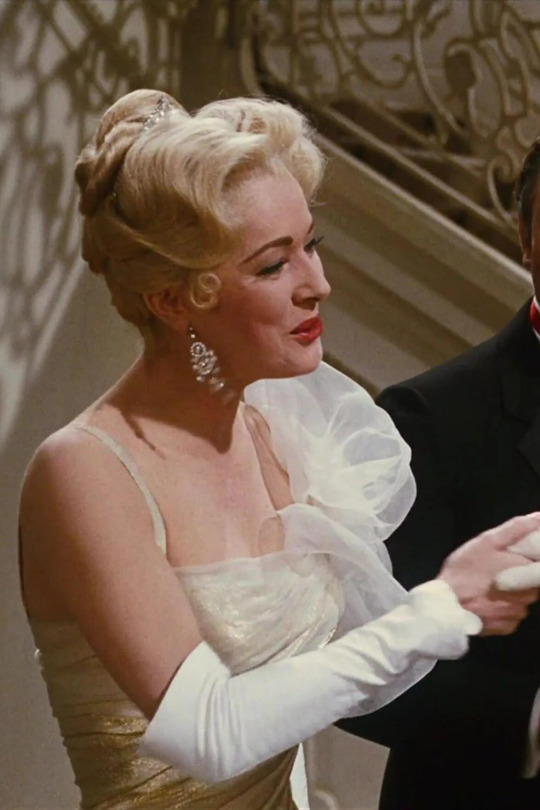
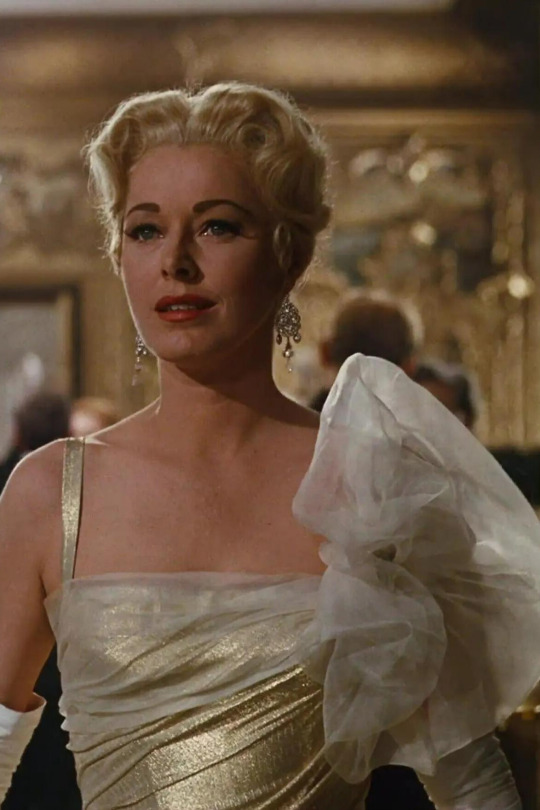

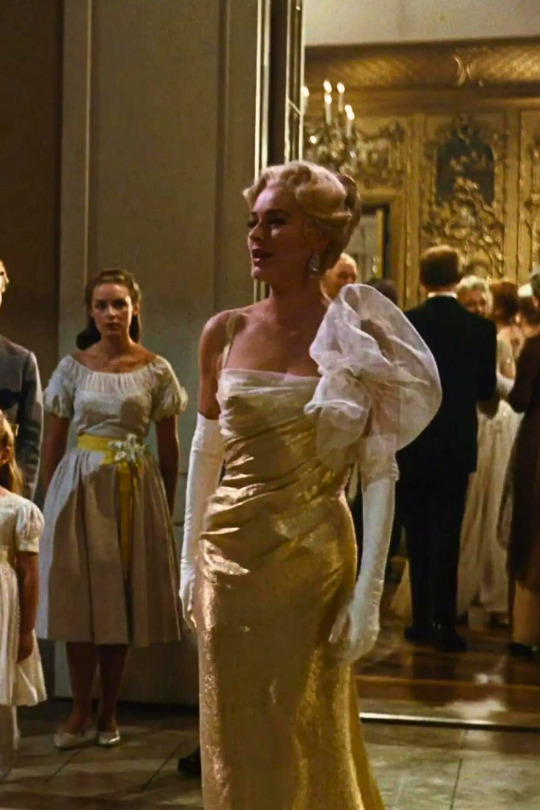
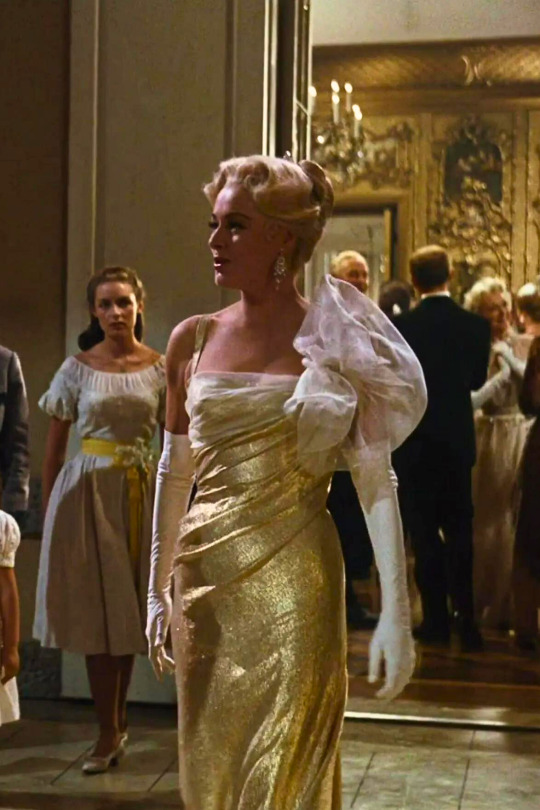


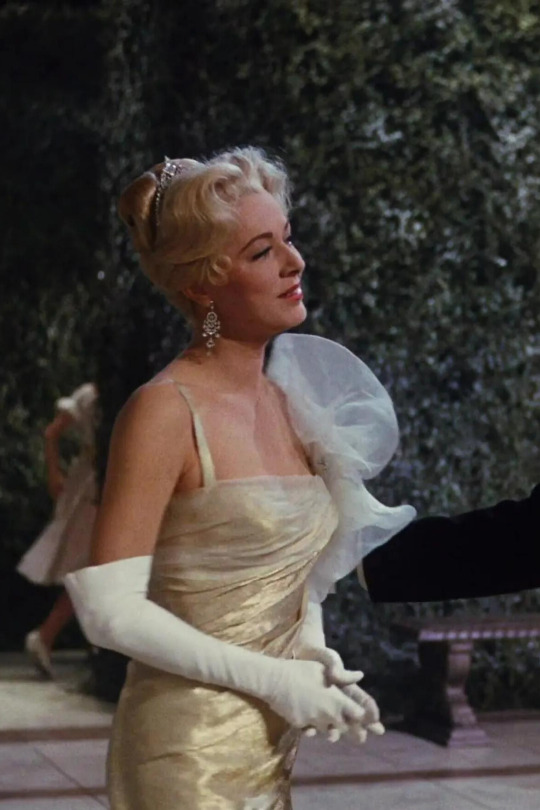

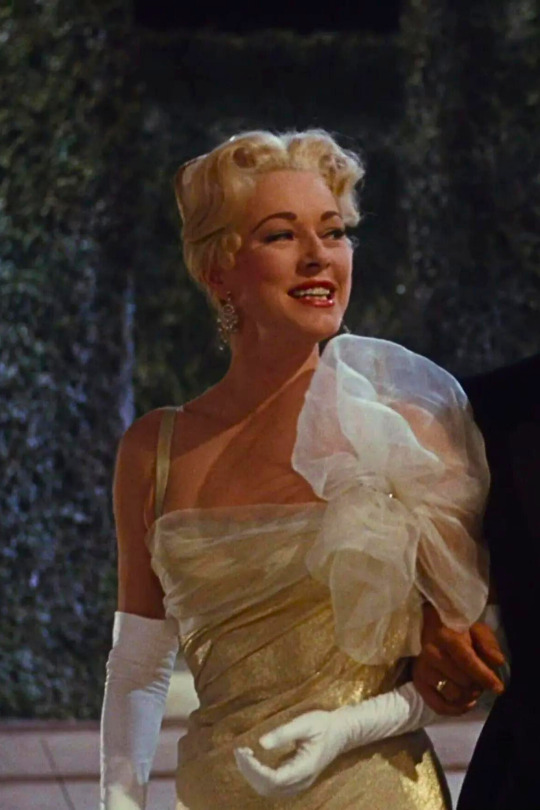
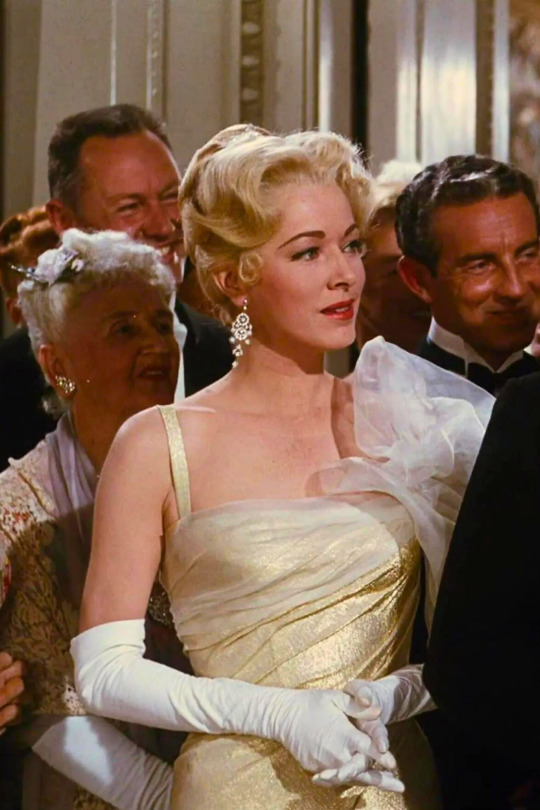



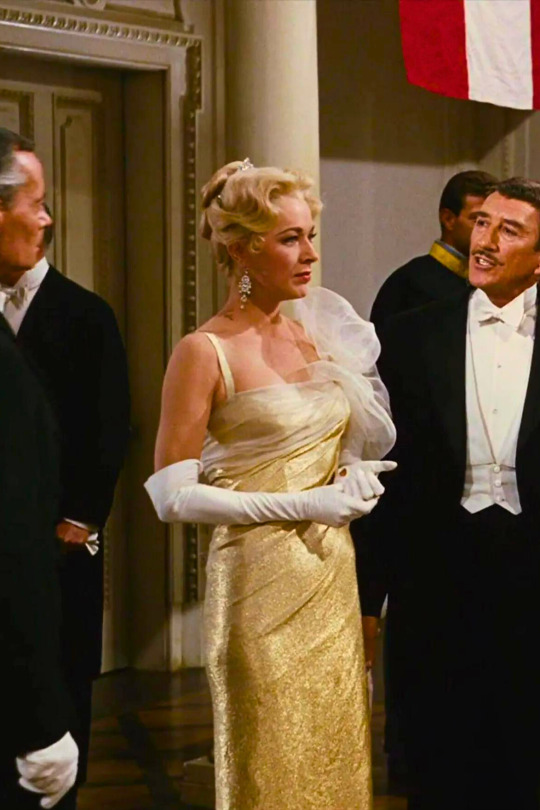

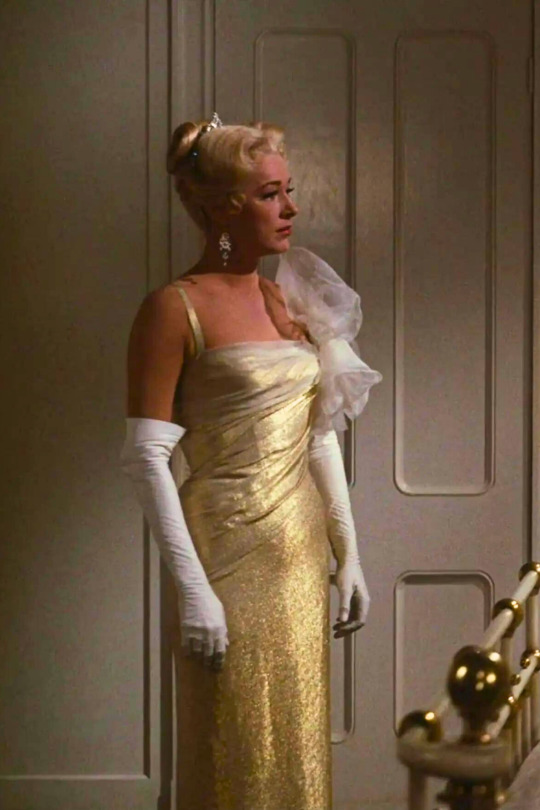



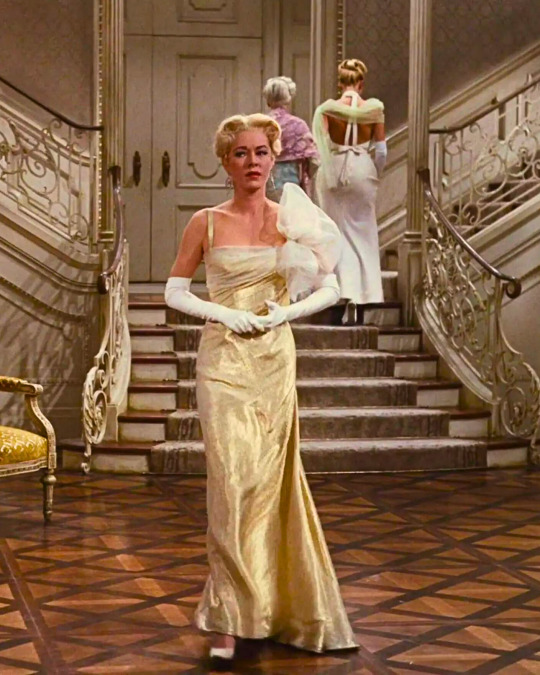
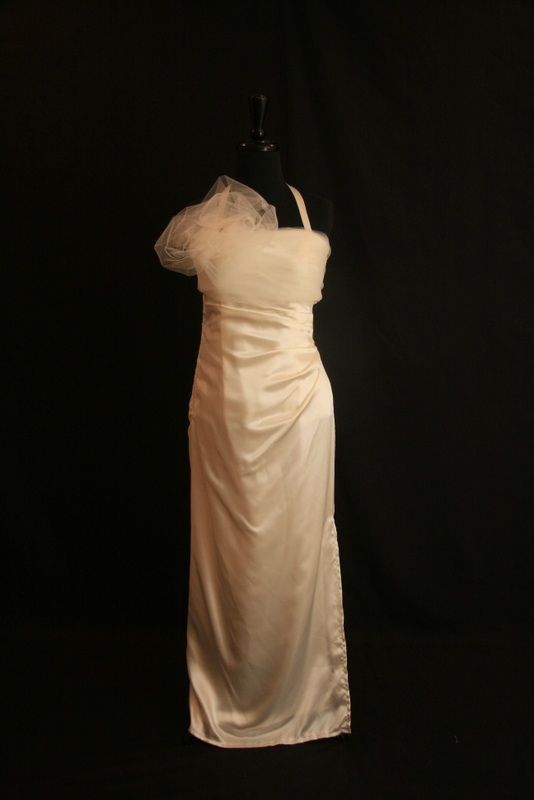

Baroness Elsa von Schraeder (Eleanor Parker) Ballgown.. The Sound Of Music (1965).. Costume by Dorothy Jeakins.
172 notes
·
View notes
Text


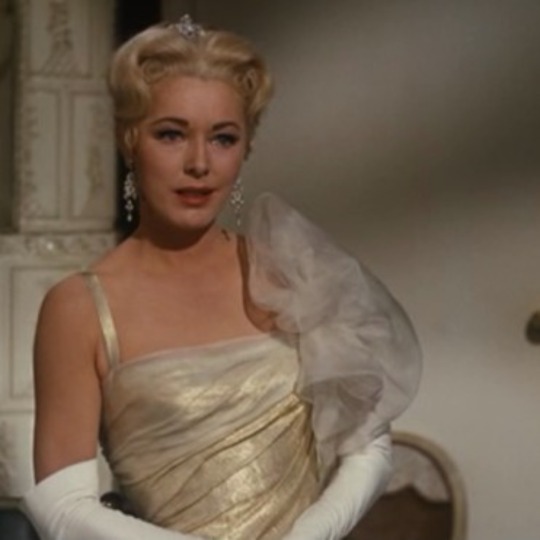

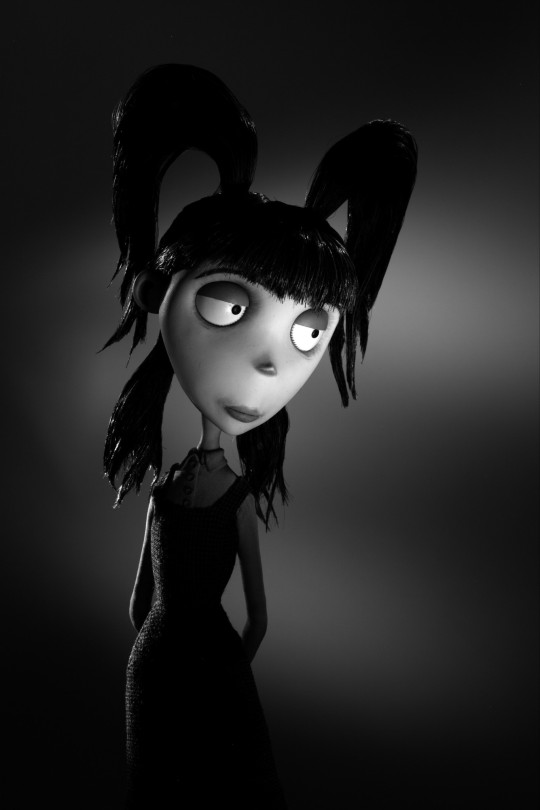
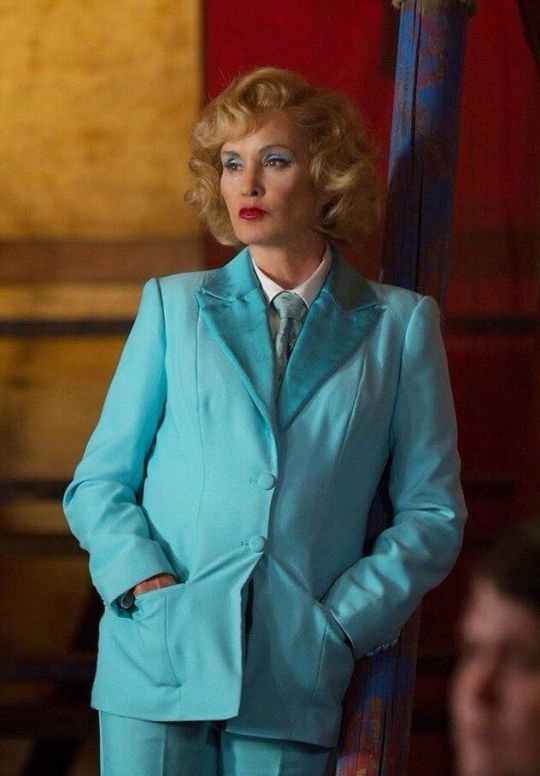
have you done your daily click
#best character named x#poll#poll game#elsa of arendelle#elsa bloodstone#baroness elsa von schraeder#elsa cleeg#elsa van helsing#elsa mars#frozen#marvel comics#the sound of music#kim possible#frankenweenie#american horror story freak show#american horror story#ahs freakshow
28 notes
·
View notes
Text
baroness schraeder was having an affair with max. I can't prove it but I know it
32 notes
·
View notes
Text
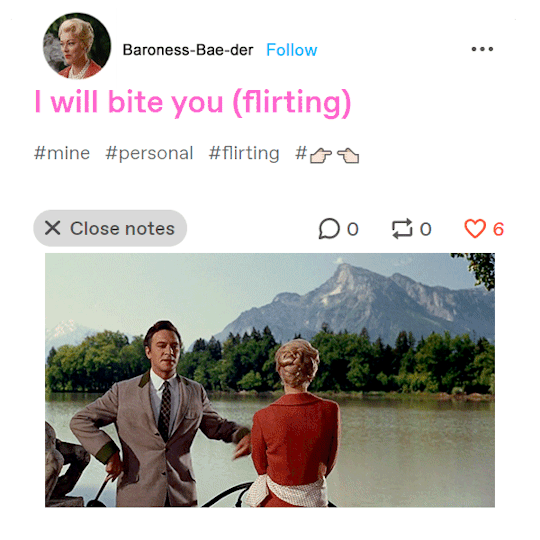
The Sound of Music (1965) as social media posts
Source: click
#the sound of music#The Sound of Music (1965)#Eleanor Parker#Christopher Plummer#captain von trapp#baroness schraeder#smau#text post meme#memes#rodgers and hammerstein#old hollywood#the sound of music memes#elsa schraeder#goerg von trapp#SMAU#txt smau#social media au#tsom crack
39 notes
·
View notes
Text
A ✨Deep Dive✨ on The Baroness, Maria, and the Sound of Music Score
I’m genuinely in one of those moods again, so here’s an _ExpandedRevised.docx version of my thread! Buckle up! This is genuinely going to be so long.
Let’s begin at the confrontation scene: our characters, Maria and Elsa Schraeder. At this point, Elsa has broken the unshockingly shocking news that Georg is in love with Maria, and Maria is mortified. Before the scene starts, as Elsa enters Maria’s bedroom, we hear very faint strains of music only to transition from the party to the private-ness of Maria’s room. No music is actually heard in this scene -- no additional dramatics. The Goodbye Maria/How Can Love Survive Waltz - Medley (which begins with Edelweiss) begins only as Elsa exits the scene.
Now, for those who don’t know what How Can Love Survive is, it’s a song from the original Broadway Musical sung by Elsa and Max as they detail why she and Georg are yet to be engaged.
As Elsa exits the scene and leaves Maria alone in the frame, in confusion and anguish, faint strains of Edelweiss plays. I’ll detail why that bit makes me cry later on, but let’s talk about how as the scene cuts to Elsa downstairs, looking smug as she walks into the ballroom -- smug and sure that Maria will be leaving them, the music transitions to How Can Love Survive.
How Can Love Survive is a “champagne problem” sort of song. It talks about how money is usually in the way of romance and how utterly difficult it is to show your significant each other love when you’re rich -- but it’s alright, they’ll keep it alive anyways, as seen in this lyric.
Caught in our gold-plated chains are we,
Lost in our wealthy domains are we,
Trapped by our capital gains are we,
But we’ll keep romance alive—
Personally, it details the shallowness of the relationship between Georg and Elsa, and also an insight on how different they are in terms of loving their significant other. The significant change of removing this in the film makes Elsa’s relationship with Georg feel much more natural -- as if drawn to each other through seeking companionship. But why use this now? It could’ve been placed anywhere within the film. Why choose this specific moment?
It’s important to note that Elsa views Maria as a nobody -- an orphaned young woman who happens to be a postulant at Nonnberg Abbey, who also happens to be a governess in the Von Trapp home. But Maria also stands for everything that Elsa isn’t. Maria likes everything that Elsa does not -- all of which Elsa lists in How Can Love Survive. It’s a shallow song, again, sung jokingly. But in this particular scene, it answers Elsa’s question of “how can love survive?”
Eliminate the competition, and perhaps then, Georg will learn to love her and only her. We see later on that this doesn’t happen, and if her bittersweet farewell is any indication, she’s just a woman in need of love but used so thoroughly for her money and influence.
But now the music changes again! (Bold text to keep us back on track because I got too sad about How Can Love Survive)
After Elsa’s finally in the ballroom and proposed a toast with Max because she’s gotten rid of Maria, the Edelweiss Waltz plays.
Now, I’ll be detailing why exactly I sob during these last few minutes before intermission!
We know that the scene before The Grand and Glorious PartyTM is the Edelweiss Scene. I don’t think I need to detail the fact that after Georg sings, he and Maria share a comfortable look -- she looks like she’s in heaven, and he gives her one of those unsure smiles... right before Elsa interrupts them with the idea of a party. And I always say that he looks at her at the very last “bless my homeland forever” unknowingly because she feels like everything home represents to him.
Edelweiss is like the oh. o h. moment when one of the characters finally realizes how much the other means to them. It, then, becomes an unspoken, subtler representation of their love -- or of love, in general, in the movie (Edelweiss sung to family = familial love, to Austria = love for country, etc.).
To see Georg and Elsa dancing to Edelweiss -- a representation of love -- feels like a slap to our faces then. Because we know that Georg isn’t in love with Elsa -- at least romantically. We know that Elsa isn’t his homeland, but perhaps he’s pretending that she is, or making himself feel as if she’s the one that he wants or must want.
What about Maria and his mixed emotions, then?
This part feels most heartbreaking to me because this is where Georg -- who has chosen to stand firm in everything he believes -- chooses convention.
Dancing to Edelweiss in a ballroom full of people, everyone watching them be the conventional couple -- as opposed the picture the Laendler paints, which is everything that this waltz is not.
He sets aside his feelings for Maria because how does he love her openly?
And in this moment, Maria also chooses to leave, because it has to be the wisest choice. Why on earth would she stay when she’s “getting in the way?”
So, to answer the question:
How can love survive?
Before the Intermission begins, we’re all heartbroken because Georg chooses Elsa -- and we established that she got the answer to making her love survive. Making Maria leave.
And Maria goes with this because how can her love survive anyways? To ask for the Captain’s love would be wrong. To leave God felt impossible, and she’d feel more confused with whatever she felt with every passing minute. So she chose to leave.
Now I’m impossibly weepy over two songs, and will need to re-watch the entire movie. I’m afraid I rambled too much, but thank you for making it this far? Warm hugs!
#tldr; the sound of music (1965) score is absolute genius#the sound of music#the sound of music (1965)#julie andrews#eleanor parker#i'm afraid I rambled to much...#dude i got so analytical#literally geeking out#film analysis#actually it's score analysis#but also cinematography analysis#migrated thread from twitter#anyways enjoy my lil piece of insanity?#the hills are alive
45 notes
·
View notes
Text
girl help i'm listening to enchanted tv and thinking about the baroness elsa schraeder and her deep and enduring love for—and heartbreak over—one captain georg von trapp hahahahahaha
1 note
·
View note
Text
The Hills are Alive!, With The Sound of Music!!!
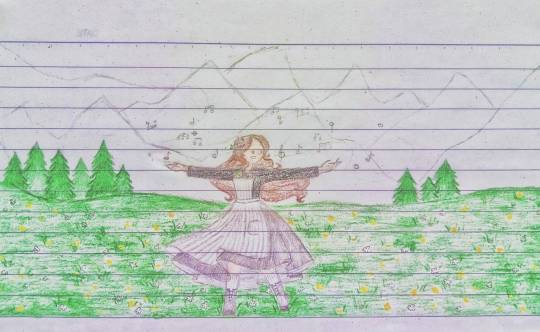
I always wanted to do this, but I hadn't got the time to so here it is. The Sound of Music one of my memorable Musicals written by Rogers and Hammerstein and as well my Mom's favorite film back then in the 1965 starring Julie Andrews & Christopher Plummer. So for today's Musical AU I've decided to have Sketch of Elena playing the role of the care free nun herself Maria Rainer. Here is what I had for the rest of Cast of the AU down below;
Maria Rainer - Elena Castillo Flores
Captain Georg von Trapp - Barnacles Bear (Human Version)
Baroness Elsa von Schraeder - Doña Hortensia Paloma
Max Detweiler - Agustin Madrigal
Mother Abbess - Bianca Castafiore
Rolfe Gruber - Adrien Agreste
Liesl von Trapp - Marinette Dupain Cheng
Friedrich von Trapp - Chistopher Robin/Walton D. Parker (OC)
Louisa von Trapp - Loretta Callisto/Clio
Kurt von Trapp - Captain Jake
Brigitta von Trapp - Sofia the First
Marta von Trapp - Izzy/Bingo Heeler (Human Version)
Gretl von Trapp - Jojo Clancy
Franz the Butler - Nigel (Baileywick's older brother)
Frau Schmidt the Housekeeper - Mistress Flora
Bonus: Maria & The Von Trapp Family
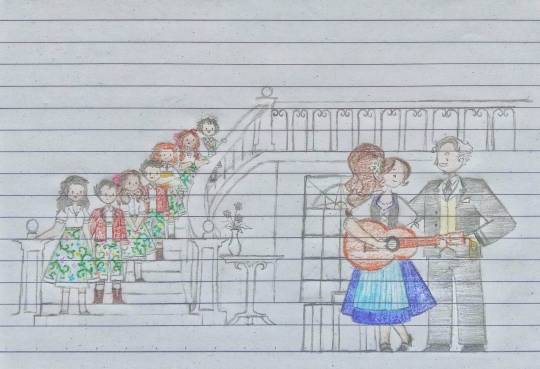
Note: If anyone ask, I don't know why though I was planning to have either Belle or Ariel instead, but the only main reason I chose her because she's the only Disney princess who plays the guitar...🎶
#art#fanart#disney#disney junior#elena of avalor#elena castillo flores#musical au#sound of music#maria von trapp#rogers and hammerstein
5 notes
·
View notes
Text
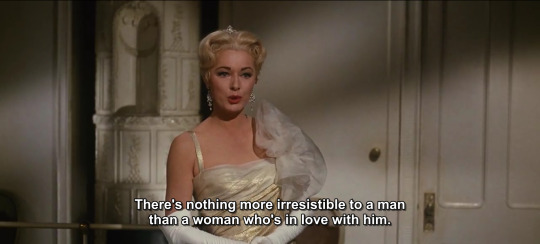
I shall remember
#the sound of music#maria von trapp#christopher plummer#movies#musicals#golden era of hollywood#eleanor parker#Baroness Elsa von Schraeder#julie andrews
13 notes
·
View notes
Text
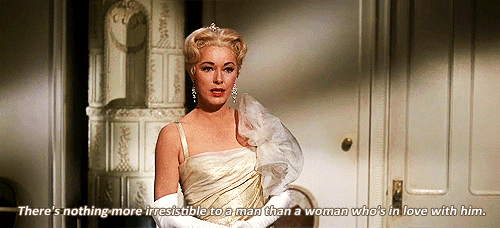
The Sound of Music (1965)
Baroness Elsa von Schraeder
#the sound of music#sound of music#eleanor parker#quotes#quote#movie#movie quotes#movie gifs#movie quote#gif#gifs#som#movie gif#baroness schraeder#elsa von schraeder#tsom#love#thesoundofmusic#irresistable#old movie#musical#musicals#1965#film quotes#film quote#film#films#richard rodgers#rodgers and hammerstein#oscar hammerstein ii
34 notes
·
View notes
Photo
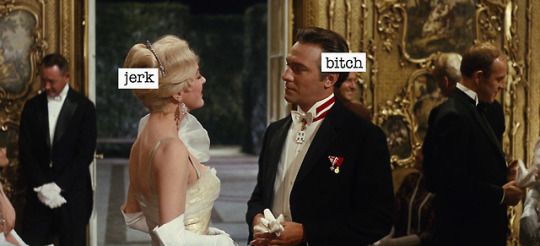
Sound of Sass
#sound of music#Captain von Trapp#georg von trapp#we all know this is what went down#julie andrews#baroness schraeder#Elsa von Schraeder#eleanor parker#christopher plummer
37 notes
·
View notes
Text
Songs that make me think of fictional couples:
Anne Shirley & Royal Gardner
- champagne problems by Taylor Swift
- I wanna love you but I don't by Ben Platt
Anne Shirley & Gilbert Blythe
- Fools by Lauren Aquilina
Captain Georg von Trapp & Baroness Elsa von Schraeder
- Meant to Be by Ber and Charlie Oriain
- happiness by Taylor Swift
Captain Georg von Trapp & Maria
- Daylight by Taylor Swift
- This Love by Taylor Swift
Marianne & Colonel Brandon
- Come Back to Me by David Cook
Anne Elliott & Captain Frederick Wentworth
- The Moment I Said It by Imogen Heap
- Still Yours by Addison Agen
Jeanne Larosière & Captain Werner von Ebrennac
- Say Something by A Great Big World and Christina Aguilera
- So Cold by Ben Cocks and Nikisha Reyes
Belle & Prince Adam (The Beast)
- I Found by Amber Run
Lucy Moderatz & Jack Callaghan
- Accidentally in Love by Counting Crows
Edward Lewis & Vivian Ward
- I Hope That I Don't Fall in Love with You by Hootie & The Blowfish
Every endgame couple in the second act breakup
- Still Yours by Addison Agen
#some of these are because of video edits#but some are from my own head#the sound of music#anne of green gables#anne of the island#taylor swift#ben platt#ber#Charlie Oriain#yes some of these couples don't end up together and i don't actually ship them#i just listen to a lot of sad breakup songs ok#sense and sensibility#david cook#lauren aquilina#imogen heap#le silence de la mer#beauty and the beast#amber run#while you were sleeping#counting crows#pretty woman#hootie and the blowfish#i just listened to i hope that i don't etc today#and then i watched pretty woman for the first time#and all i could think of was that song#a great big world#christina aguilera#persuasion#Addison Agen#my choices for Maria and Georg are strongly influenced by meredith813's amazing edits
20 notes
·
View notes
Photo
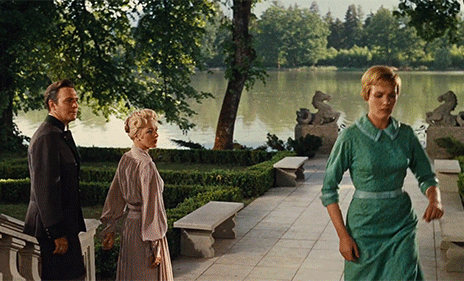
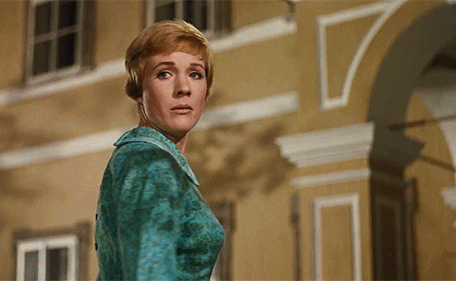
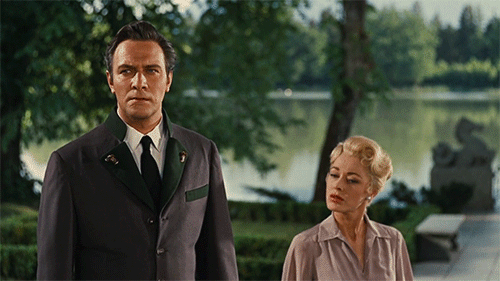
#essentially the plot#texts from last night#The Sound of Music (1965)#source: texts from last night#source: tfln#the sound of music#sound of music memes#julie andrews#dame julie andrews#fuck yeah julie andrews#Fraulein Maria#christopher plummer#captain von trapp#georg von trapp#eleanor parker#Baroness Schraeder#Elsa Schraeder#old hollywood#classic film#musical film#rodgers and hammerstein
145 notes
·
View notes
Text
The Sound of Music (1965); AFI #40
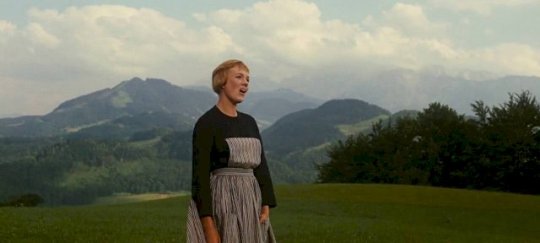

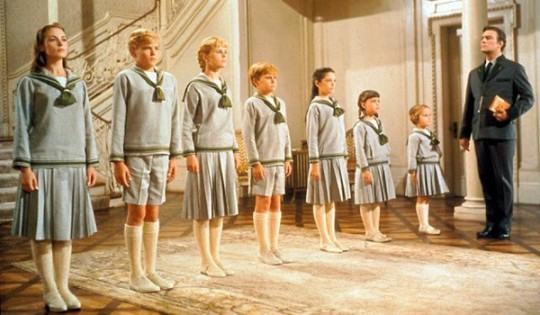


The next film that we reviewed from the AFI Top 100 was the most successful movie adaptation of a Hollywood play of all time, The Sound of Music (1965). The story was based on the 1949 memoir of Maria Von Trapp, who became a nanny for a retired naval officer and his children. They lived together in Austria and had to escape from the invading Nazi party right before the start of WW2. That story was turned into a musical by the dynamic duo of Rogers and Hammerstein and eventually translated to a Best Picture Oscar winner directed by the great Robert Wise. The film was nominated for 10 Academy Awards and won 5 of them. This truly is a phenomenal story with great music and I can't wait to get into the breakdown. Of course, I do need to mention...
SPOILER ALERT!!! IT IS NOT LIKELY THAT MANY PEOPLE DON'T HAVE AT LEAST AN IDEA OF THE PLOT OF THIS FILM, BUT I REALLY GO OVER THE DETAILS!!! MAKE SURE THAT YOU REALLY KNOW THE STORY AND HAVE SEEN THE MOVIE BEFORE GOING ANY FURTHER!!!
---------------------------------------------------------
The film opens on that iconic spinning shot of Maria (Julie Andrews) from a helicopter and establishes the beautiful hills of Austria. The whole movie is set on and around the city and hills of Salzburg, Austria. It is 1938, dangerously close to the rise of the the Third Reich and Nazi occupation, but Maria is not involved in such things at the time. She is young, enthusiastic, and completely lacking discipline. Turns out she is training to be a nun at the millennia-old Nonnberg Abbey and the Mother Abbess (Peggy Wood) is considering what to do with her. It is decided that Maria will leave the abbey for a time and work as a governess for one Captain von Trapp (Christopher Plummer) and his seven children.
On the day she arrives, Maria learns that the Captain cares for his children with strict military discipline and also that the kids have caused a lot of trouble for their previous governesses. It seems that their mother has died and their father is distant, so they act out to try and get attention. The kids put a frog in Maria's pocket and place a pine cone in her chair at dinner, but she instead thanks them for their warm welcome and they all cry out of guilt. That night, the eldest daughter Liesl (Charmian Carr) goes out and meets with a young suitor named Rolfe (Daniel Truhitte). They sing together in the rain and then she returns to the house via Maria's room. While there, a thunder storm begins and all the other children join out of fear. Maria sings with them about getting over their fears by imagining good things and the children begin to trust her. The next morning, the Captain leaves to go to Vienna giving Maria a chance to bond with the children even more.
While the Captain is away in Vienna, Maria decides she will teach the children to have fun and allow them to play. She tears down drapes and makes play clothes for the children, then takes them around Salzburg and the surrounding mountains. She teaches them how to sing, allows them to climb in trees, and piles them in a boat to go rowing. The Captain unexpectedly returns to the villa with rival love interest Baroness Elsa Schraeder (Eleanor Parker), a rich Viennese socialite and widow looking for a new husband, and mutual friend "Uncle" Max Detweiler (Richard Haydn). The Captain and his guests are greeted by Maria and the children returning from a boat ride on the lake that concludes when the boat overturns. Displeased by his children's clothes and Maria's impassioned appeal that he get closer to his children, the Captain orders Maria to return to the abbey. Just then, he hears singing coming from inside the house and is astonished to see his children singing for the Baroness. Filled with emotion, the Captain joins his children, singing for the first time in years. Afterwards, he apologizes to Maria and asks her to stay.
Impressed by the children's singing, Max proposes he enter them in the upcoming Salzburg Festival but the suggestion is immediately rejected by the Captain as he does not allow his children to sing in public. He does agree, however, to organize a grand party at the villa. The night of the party, while guests in formal attire waltz in the ballroom, Maria and the children look on from the garden terrace. When the Captain notices Maria teaching Kurt the traditional Ländler folk dance, he cuts in and partners Maria in a graceful performance, culminating in a close embrace. The children get together and sing a goodnight song to the party crowd and the impressed Max insists that Maria join the group for dinner. Confused about her feelings, Maria blushes and breaks away to change clothes. The Baroness, who noticed the Captain's attraction to Maria, hides her jealousy while convincing Maria that she must return to the abbey. Instead of joining the party, Maria leaves a note and runs back to the abbey.
Intermission
Back at the abbey, when Mother Abbess learns that Maria has stayed in seclusion to avoid her feelings for the Captain, she encourages Maria to return to the villa to look for her life. We get the very appropriate, but perhaps the most out-of-nowhere and cringy performance in the film, "Climb Every Mountain" sung by the Mother Abbess. It is convincing and Maria returns to the villa, only to learn about the Captain's engagement to the Baroness and agrees to stay until they find a replacement governess. The Captain's feelings for Maria, however, have not changed and he breaks off his engagement with the Baroness and proposes to Maria. The announcement of the first engagement, the return of Maria, the break-up, and the second engagement all happen in a single day in film and about 20 minutes of run time, so make sure to pay attention.
While they are on their honeymoon, Max enters the children in the Salzburg Festival against their father's wishes. When they learn that Austria has been annexed by the Third Reich in the Anschluss, the couple return to their home, where a telegram awaits informing the Captain that he must report to the German Naval base at Bremerhaven to accept a commission in the German Navy. Strongly opposed to the Nazis and the Anschluss, the Captain tells his family they must leave Austria immediately. That night, as the von Trapp family attempt to leave, they are stopped by a group of brown shirts waiting outside the villa. When questioned by Gauleiter Hans Zeller, the Captain maintains they are headed to the Salzburg Festival to perform. Zeller insists on escorting them to the festival, after which his men will accompany the Captain to Bremerhaven.
Later that night at the festival, during their final number, the von Trapp family slip away and seek shelter at the nearby abbey, where Mother Abbess hides them in the cemetery crypt. They are about to get cleanly away when the are discovered by the boy who was courting Liesl. Rolfe is sill a boy but is shouldering the responsibilities of a man. He lets the family get by because he can't bring himself to harm them, but he does call for backup. More brown shirts soon arrive and attempt to pursue, but they discover their cars will not start as two nuns have removed parts of the engines. The next morning, after driving to the Swiss border, the von Trapp family make their way on foot across the frontier into Switzerland to safety.
------------------------------------------------------
I think the first thing to mention is the undeniably beautiful music. I absolutely love the music of this film and how each song starts off simple and just builds in complexity. The best songs either set the scene or progress the plot and are magnificently placed. From the opening song that sets the scene, to the discussion of how to deal with a woman that doesn't fit in, to the discussion of what to do when you are afraid, to putting your love and affection towards somebody who can't love you. The themes are incredibly deep when you consider the lyrics of the songs as foreshadowing the rest of the movie. The von Trapp family has to escape into the hills and they do it using their musical skills. When the family is trapped and has to keep quiet despite extreme fear for their lives, they are able to make it through because they have been taught to suppress their fear thinking of their favorite things. "Sixteen Going on Seventeen" has the young German boy talking about being a man because he is slightly older then the eldest von Trapp daughter, yet he is charged with finding the family and turning them over to the German military and he can't do it. The music serves a purpose and the movie would be far less palatable for it, despite the story being a truly fascinating real life drama.
The great actress Julie Andrews does such a good job as Maria. This was most definitely a perfect role for her and might be her greatest performance. It is between this role and the part she played in Mary Poppins the year earlier. In fact, Julie Andrews was much better known for her Broadway performances at the time of this film. Mary Poppins was the first feature film role for Julie Andrews and The Sound of Music was technically her third. She jumped on the Hollywood scene and was exceptionally lucky that musicals were popular and she was a beautiful young triple threat (acting, singing, and dancing). She is the perfect example of success being a mixture of preparation, luck, and opportunity.
One thing I forget about musicals from this time period is how quickly plot points (like falling in love and building relationships) happen. I don't mean in terms of run time, I mean in terms of time passing by in the story. Maria is sent to be with the von Trapp family and the children go from hating her to needing and trusting her in a single day. She goes from being a beloved nanny to running away to rejoin the nunnery in one evening. The captain goes from proposing to the Baroness to Maria returning to breaking off his engagement to asking Maria to marry him in a 48 hour period. The Captain and Maria return to Austria after their honeymoon and enter a singing competition to escape to Switzerland all on the same day. In terms of run time, that first day actually takes up the first hour of the film. That last night takes up the last half an hour. I doubled checked this just to make sure, but it is true: only 4 critical days are shown in the film. Maria leaves the convent and arrives at the von Trapp house. Time passes, The Captain returns to fire Maria but changes his mind and instead throws a party where Maria runs away. Time passes. Maria is convinced to return and arrives to find the Captain is engaged before he changes his mind to leave the Baroness and immediately proposes to Maria. We see them on their wedding day. Time passes. The Captain and Maria return and he is ordered to join the Navy, but he instead using the children's performance that night as cover to escape with his family. End of movie.
Despite the story being about a young family escaping the Nazis, this film has the lightest rating (G) of any best picture winner. Some films were not rated at the time that would now be considered a G rating and Oliver! in 1968 had a rating of GP (general public) that no longer exists. It seems like a movie that doesn't have at least a bit of a serious tone can't win a Best Picture and that comes with a heavier rating. It was funny that the Amazon Prime virtual copy that I saw most recently starts out with a screen that says rated G for violence, language, and adult situations.
There are some funny behind the scenes stories since there were many young children in the film. This means that many of them are still alive and can relive their memories with young fans. We are also lucky enough to have Dame Julie Andrews still working and sharing her experiences like a champ. She really is a treasure. The young girl who played the adorable Gretl von Trapp (Kym Karath) is only in her early 60s since she was only six in the film. it was actually her 4th picture, giving her more experience in film than Julie Andrews at the time. There were plenty of specials commemorating the 50th anniversary of the film back in 2015, so there are actually some really good interviews with the surviving cast that are relatively recent. I would highly suggest the 20/20 review of the film that can be found on YouTube:
NBC|ABC|20/20: The Untold Story of 'The Sound of Music - YouTube
There was some concern from the cast and the producers that a film version of a musical would not be financially viable. Other Rogers and Hammerstein musicals had been adapted to film and had not lived up to the success that was found on Broadway. Luckily, director Robert Wise used the natural lighting and countryside of Austria and Germany to slightly excuse the sudden singing of a musical that seems out of place in film. Also, he had recently directed West Side Story and knew how to best accomplish this. Then again, who wouldn't want to dance around and sing in those mountains? Wise did some things like lowering the tone of the song "Climb Every Mountain" and moving Maria through the countryside while she was singing "Confidence in Me." This helped reduce the cringe factor.
So does this film belong on the AFI top 100? Oh God yes. It is a great story adapted by the greatest American songwriting duo and directed by one of the great American directors who specialized in musicals. The list would be lacking if this film was not on it. Would I recommend it? Oh man, yes. Go watch it right now. Oh, you just saw it? Watch it again. It's that good.
#robert wise#julie andrews#the sound of music#musicals#introverts#introvert#60s#classic film#best picture#Oscar Winner#rogers and hammerstein
24 notes
·
View notes
Video
youtube
Jonathan was recorded for a Salzburg Marionette Theatre production of The Sound of Music in 2007. An audio recording of Jonathan (as a marionette) singing ‘Sixteen going on seventeen’ starts at 3:30.
A Theater Mania article from October 2007 confirmed Jonathan was part of the voice cast:
https://www.theatermania.com/new-york-city-theater/news/groff-noll-et-al-voice-salzburg-marionette-theatre_11926.html
Joy Franz, Jenn Gambatese, Jonathan Groff, Christiane Noll, Martin Vidnovic, and Bill Youmans are among the Broadway veterans who will provide the voices for The Salzburg Marionette Theatre's production of The Sound of Music , which will kick off a U.S. tour at the Dallas Theater Center, November 2-4.
The all-marionette production will be helmed by DTC Artistic Director Emeritus Richard Hamburger, and performed to a fully orchestrated recording by the Istropolis Philharmonic Orchestra, conducted by Larry Blank.
The voice talents on the recording include Kelsey Fowler (Marta von Trapp), Franz (Sister Berthe, Frau Schmidt), Gambatese (Louisa von Trapp), Kylie Goldstein (Gretl von Trapp), Groff (Rolf Gruber, Friederich von Trapp), Matthew Gumley (Kurt von Trapp), Betsy Hogg (Brigitta von Trapp), Jeanne Lehman (Mother Abbess), Michael McCarty (Franz, Baron Elberfeld, Admiral von Schreiber), Crista Moore (Baroness Elsa Schraeder, Sister Margaretta), Noll (Maria Rainer), Vidnovic (Captain Georg von Trapp), Jennifer Hope Wills (Sister Sophia, Liesl von Trapp), and Youmans (Max Detweiler, Herr Zeller).
16 notes
·
View notes
Note
Good luck on the dissertation, went there twice. For when you return : top 5 favourite non-english shows (either non-english speaking productions of english-speaking shows or just original shows from non-english speaking countries). And dreamcast for a Sound of Music revival ?
thank you!!!! (i have not done anywhere near enough work to be back on here but im currently on my nightly search for bow pics of the staged concert so)
favourite non-english show:
1. tanz der vampire - the first non-english musical i got into and just still my absolute fave. unbelievably catchy songs and cool vibes throughout. wish someone would take the chance and give it a good english speaking production tbh.
2. elisabeth - bop after fucking bop. also death being a character is just a concept im obsessed with.
3. rebecca - insanely cool vibes. shame the bway production was the wildest theatre scandal (i fully still don't understand what happened tbh)
4. dracula - ok so i just love dracula in any form but i also love a good frank wildhorn musical. essentially i am specifically a fan of the austrian production which i got into bc i refused to listen to the english recording bc j*mes b*arb*ur is dracula but it's actually in general far superior.
5. mozart - actually only started listening to the cast recording of this properly recently but have had it on repeat ever since
if you have any recommendations on non-english musicals please do let me know because i am MASSIVELY uneducated on the topic!!!
ok now my sound of music revival dreamcast:
maria - gina beck
i thought a lot about this and i think the Acting is really important as well as the voice. i just think she'd nail both tbh.
captain von trapp - earl carpenter
what a suprise i know. but like can you think of any other musical theatre actor at the moment who could harness the exactly right vibes to be captain von trapp. no because there is no one else.
baroness elsa von schraeder - hannah waddingham
i know she's like super famous now and would never do such a small part but like she'd be SO GOOD.
max detweiler - peter polycarpou
ok so my first thought was obviously my king, michael ball, but then i thought of peter and was like Yeah. would also accept roger allam.
mother abbess - rebecca caine
sorry but every since i heard her sing 'climb ev'ry mountain' it has become The definitive version in my mind. (i also actually really wanted to say rebecca caine as the baroness but she doesn't have a big song and like you can't have her not sing the big showstopper tbh)
ok i know there are like tons of other characters but im don't think i am capable of dreamcasting the children :))))
give me a musical and i'll give you my dreamcast!
3 notes
·
View notes
Text
The Sound of Music
Remaining relevant even fifty years after its release, The Sound of Music (Robert Wise, 1965) has earned the title of one of the greatest American movies of all time. This musical is based on the real Von Trapp family, following main character Maria (Julie Andrews) as she looks after the seven children. Through analysis of the narrative, editing, tone, and sound, this iconic film has so much to offer the audience.
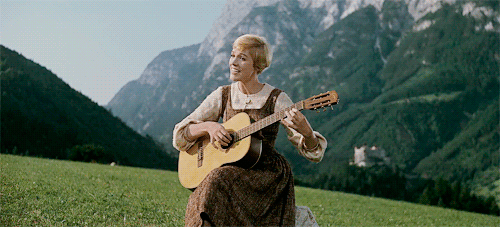
The title of the film carries a lot of weight throughout the narrative. Specifically, during the scene in which Captain Georg Von Trapp (Christopher Plummer) is scolding Maria for allowing the children to play and immediately stops when he hears them begin to sing the song, “The Sound of Music.” There is a shift in the narrative here and for almost all of the characters, everything changes. For the kids, they get what they have been searching for: their father’s attention. They harassed each governess, driving them away from their home, in the hopes that their father would notice them. Now, they realize that all it took was the sound of music. For the captain, he finally understands what had been missing in his life. Maria brought music back into their home, something that hasn’t been present since the passing of his wife. The change in him is visible on his face – the recognition and appreciation of the music is immediately clear. For Maria, music is finally something she can be proud of. At the abbey, she was scolded for singing. Here, it is what brought her closer to the family.
The specific character of Maria is imperative to the film’s narrative. She isn’t simply a device to move the plot along. Her quirky personality and quick wit is so specific to this character – it wouldn’t have worked any other way. She is better with children than she is with adults, as is clearly seen at the party. Baroness Elsa Schraeder (Eleanor Parker) is a stark contrast to her, described as “charming” and “graceful.” While she was more of a stock character, a gold digger and almost “evil stepmom” type, planning to send the children off to boarding school, she was necessary for the audience to see the difference in the care the children received from each woman. They are complete opposites. Maria’s modest dresses dull in comparison to those of the baroness. Yet somehow, that is what allows Maria to fit in more. Her kind and patient persona is that of a mother.
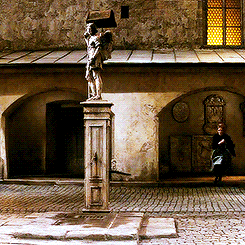
For the most part, the filmmaker used traditional invisible editing, allowing the focus to be on the narrative. However, certain scenes were edited in order to hint to the audience how they should be feeling. There were several instances in which the characters almost seemed to glow. The shots incorporated soft lighting, causing them to take on a glossy and romantic feel. For example, when Rolfe (Daniel Truhitte) and Liesel dance in the gazebo, when the Captain watches his children sing “The Sound of Music,” when the Captain and Maria dance at the party, and when they profess their love for each other again at the gazebo, they are edited in this way. It is important to note that each of these scenes have something in common: love. The filmmaker used this technique to show the audience when the characters felt a sense of love, even if they weren’t aware of it themselves.
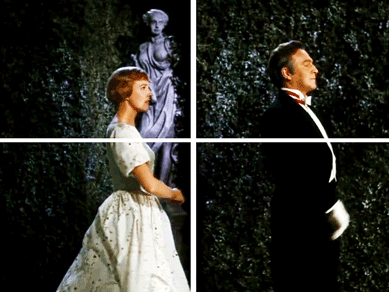
The Sound of Music maintains a pretty joyful tone, especially when Maria is with the children. Her interactions with them are almost always hopeful and festive. It also becomes romantic as Maria and the captain grow closer. However, the film takes a sharp turn after the wedding and the tone changes abruptly. It instantly becomes one of high anxiety. The first shot after the wedding consists of soldiers marching in front of a swastika. The looming threat of Hitler’s reign becomes the focus of the narrative. There are only subtle hints at this threat earlier, such as the complaints about the Austrian flag being hung at the party in the Captain’s house. What was a jolly, musical love story about a family becoming whole again suddenly shifts into a secretive escape from Hitler’s rule and an expression of their Austrian patriotism. The reasoning for this abrupt change is most likely because the story is based in reality. The Von Trapp family’s escape from Austria is central to their story. Although the movie isn’t entirely historically accurate, it would be an injustice to not incorporate this important event in their lives. If The Sound of Music wasn’t based on real events, it would’ve been plausible and even satisfying to end the film with the wedding of Maria and Georg.
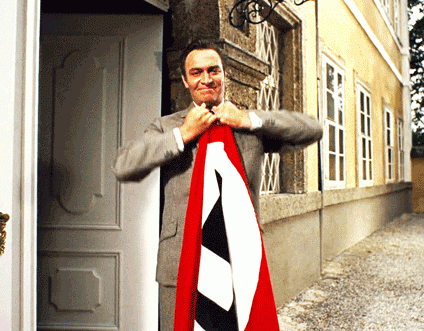
The sound in this film is perhaps the most important part of the story. First, lack of sound was used early on to make an impression. When Maria first walks into the house and looks around, the scene is completely silent. She sees grand but empty rooms and she starts to dance, filling the room with a bit of life, foreshadowing what she was about to do for this family. Apart from her footsteps echoing throughout the house, there is absolutely no sound. Then the captain slams the door open, making a loud noise, alarming the audience. The silence was used so that this specific moment – the moment they meet – would be engrained into our heads. She also breaks the silence at the dinner table. The captain explains to her that they usually don’t speak at dinner and instead just eat their food. But she has too much to say. Later on, the captain explains that it was this dinner in which he fell in love with her – particularly when she screeched as she sat on the pinecone. She had broken the silence in their home. Of course, the actual sound of music was of great significance in the film. The tunes of the songs that they sing are repeated as background music at several points throughout the movie. For instance, the song, “The Sound of Music,” plays when Maria and Georg first kiss towards the end of the film. It’s clear that this song reminds him of Maria as it’s the first song that the kids sang in front of him, thanks to her.
On its own, The Sound of Music is a captivating film with a message that transcends time. When analyzed past the surface it is much more than that. The story becomes a work of art holding endless possibilities.
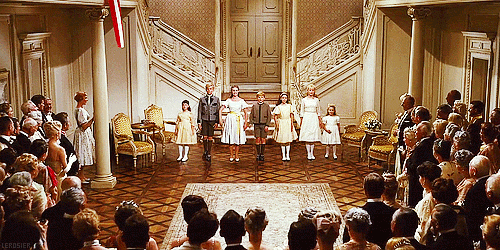
30 June 2019
#sound of music#julie andrews#film#filmreview#filmreviews#christopher plummer#the sound of music#movie#movies
5 notes
·
View notes